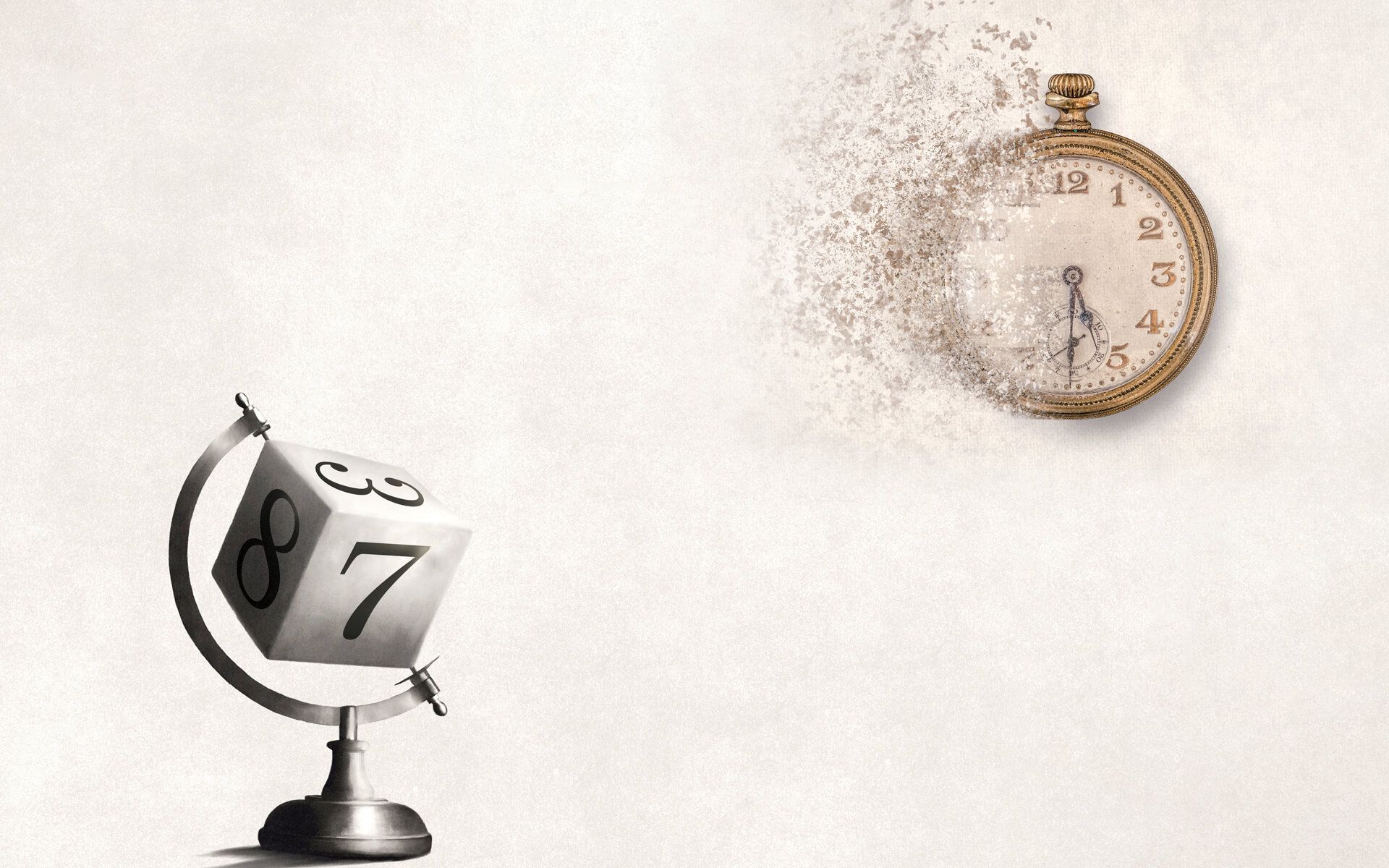Lucky Numbers?

In This Article
-
The numbers allow us to understand countless fascinating and useful patterns of nature that we would never be able to discover otherwise.
-
Although numbers are always a part of our lives there are still situations that have little to do with mathematics.
-
Certain numbers are lucky for certain people, while others believe they are a source of bad luck.
Have you ever thought about what your world would be like without numbers? Would we be able to build our civilization without numbers? We encounter them everywhere and we need them to survive. They are not only to use them to count, measure, and do calculations; numbers rule our lives. We are identified by Social Security Numbers, bank account numbers, and telephone numbers. Science, economy, and business are all about numbers. As a society we are organized with the help of numbers.
Some define mathematics as the science of patterns – and there are observable patterns in nature. With numbers can we make sense of these designs. With pi, for instance, we can see the ratio between a circle's circumference and its diameter, and this is possible only if we can mathematically identify it. The numbers allow us to understand countless fascinating and useful patterns of nature that we would never be able to discover otherwise.
In everyday life many occasions contribute to the growth of the mental work of knowledge and meaning associated with a number. Although numbers are always a part of our lives there are still situations that have little to do with mathematics. The numbers that help us understand mathematics are sometimes used in contexts that have nothing to do with mathematics. When you think of the number 7 for instance, you can ask why there are so many things related with it: Why are there seven days a week? Why is James Bond encoded with 007? Why are there seven dwarfs in Snow White fairy tale? Why are there seven sleepers in the Biblical story? Why is the number of circumambulations seven in the Ka’ba? Why does the rainbow have seven colors? Why are the wonders of the world are called the Seven Wonders of the World? Why is the number of notes seven in music? Why are there seven stars in each of the Big-Little Bear constellations? Why are there seven verses in Surah al-Fatiha? Why is the number seven so unique?
Interestingly, the number 7 shows up in a survey in which researchers asked 30 thousand participants the same question: "What is your lucky number?” Almost 10% of the participants answered it was “7,” the most preferred number in the survey. So the question comes up to the mind: why did most people choose the number 7? Does it have anything related to the “why questions” mentioned above? Or is the juxtaposition of three sevens in jackpot machines, called a lucky 7, influential in this case? Regardless of the reason, almost three thousand out of thirty thousand people feel this number unique to themselves. Researchers also asked why they thought the number was lucky and participants gave different answers: waking up at 7:00 every day, the door number of their birthplace, songs that lasted around 7:07 minutes, etc. As understood from the given responses most of them were related to people's personal preferences. Therefore these responses seem not helpful to understanding the questions above, such as why a week is seven days or why the earth and the skies are considered to have seven levels.
When the 30 most preferred numbers were listed, the number 3 comes second after 7, then numbers 8 and 4 follow them. What are the special features of these numbers that make them to be the most preferred? I have pointed out remarkable properties of some of these numbers:
Almost 7% of participants have chosen number 8 in the survey. It is plausible in many far eastern cultures that the number 8 is considered a lucky number to the point of obsession. Number 8 means good chance in Chinese culture because the Chinese word for "eight" sounds like "wealth." Also, turned on its side, it represents the infinity symbol – which means "forever." The Beijing Olympics opened on 8/8/08 at 8:08 pm – not a coincidence!
It seems the number 4 is in fourth place, but surprisingly, unlike number 8, it calls for bad luck in the Far East. The pronunciation of the number four in Japanese is very similar to the word “death.” Because of this, four have been considered bad luck in Japan, Korea, and China. It is often deemed to be terrible luck to give a gift made up of four pieces to someone. Many buildings with dominantly Asian populations do not have the fourth floor, much like the number 13 in parts of North America. You might find a hotel without a 4th floor or a product line without a series 4. For example, Nokia mobiles went from series 3 to series 5 product range. In Western culture, four isn't necessarily considered lucky or unlucky; however, there are a few unlucky fours. The Four Horsemen of the Apocalypse from the Christian Bible and most swear words are called "four-letter words." As far as these are disadvantages for number 4, still 5.6% of thirty thousand participants in the survey selected it as their lucky number.
The next number is 5, which is in fifth place. Another weird coincidence! 5.1% of participants in the survey have chosen it as their lucky number. The number 5 is impressive because it occurs a lot in nature. Humans have five senses (sight, smell, taste, touch, and hearing); and five fingers on each hand and foot. Some fascinating creatures, such as the starfish, have five-fold symmetry which means they can be rotated five times and will still look the same.
In the sixth place we have a thrilling number: 13. Out of all participants 5% consider it to be their lucky number, but it is accepted as an inauspicious number in most western countries. Even in some buildings, there is no floor or flat with this number. The fear related with number 13 even has a name: Triskaidekaphobia. Historically, this belief is based on two events: First, according to Christian faith, there were 13 people in total at Jesus' last supper before his crucifixion on a Friday; Jesus and the 12 apostles. The second incident related to number 13 is about the templar knights in the fourteenth century who were arrested by the orders of the French King Philip and approval of Pope Clemens, on Friday, October 13, 1307. The bad luck of the number 13 and the source of "Bloody Friday" is also attributed to this inquisition cruelty. Another event why bad luck is associated with number 13 is the conquest of Constantinople in 1453, a year whose numbers adds up to 13.
The number 42, coming after the top ten, is exceptional. To understand the story of why this number, which is considered the myth of modern times, was preferred, we need to analyze a novel which is the origin of this myth: The Hitchhiker's Guide to the Galaxy by Douglas Adams (d. 2001). The book mentions an imaginary race of hyper-intelligent beings who lived millions of years ago and dominated all dimensions. To put an end to the futile debates on life's meaning, two of the most intelligent and brilliant people are assigned to build an enormous supercomputer – perhaps a quantum computer – that can calculate Life, the Universe, and Everything. After the building of the computer is done, they call it “Deep Thought,” and asks it to give the answer for the meaning of life. Deep Thought’s response is, "I'll have to think a little bit. Come back in seven and a half million years.” After 7.5 million years, everyone fills the square with enthusiasm when the big day comes. The supercomputer says, 'You really will not like it at all,' and says 42. Yes, the number 42. Although this answer confuses everyone, it has become very favored over time and has inspired many. So much so that an asteroid which was discovered in February 2001 was named 2001DA42. In the 42nd episode of the “Doctor Who” series, the band Coldplay referred to this book with their song of the same name. “Lost,” one of the two most mysterious series in TV history, featured 42 in the enigmatic issue that will bring the world's end: 4, 8, 15, 16, 23, and 42. By the way, all these numbers except number 15 are among the top thirty most preferred in the survey. The apartment number where the lead character, “X Files,” another mysterious TV series, was also 42. The first building of Googleplex was “Building 42.” According to some, this name was given to the building in reference to the novel The Hitchhiker’s Guide to the Galaxy. CERN Laboratories, which also includes the Large Particle Accelerator, has an office building named 42 for the same reason. How many antennas are at the "Allen Telescope Array" of SETI, which investigates extraterrestrial life? Yes, you guessed it right: 42! Also searching “answer to life the universe and everything” on Google shows number 42 with a calculator!
Some selected numbers may have come to the front due to their numerical properties. For instance, “Pi” and “e” (Euler’s number) come in the 18th and 28th place respectively in the list of the most preferable numbers. It is not surprising why the Pi number made it into the list considering its reputation. This number, whose number of digits after the decimal point has not yet been determined and have thought to extend to infinity, is considered sacred by many people. Assuming that it has a purely random property, if pi is long enough, you can find every string of digits in your life in pi. So your birthday, phone numbers, or any number you randomly type in are somewhere in the pi. Let's go further. With a code that can convert letters and numbers, you can theoretically find the name of any person or institution, a word, a sentence, or even a book, in the number pi. Those who think that all life is represented inside this number are not few. Some even memorize it as worship. According to Guinnes Book of records, the record on memorizing pi belongs to a Chinese named Lu Chao with 67,890 digits and it took him 24 hours and 4 minutes to recite all the digits. In 2006, a Japanese named Akira Haraguchi said that he memorized 100,000 digits after the decimal point in almost 18 hours, but this was not officially validated by Guinness.
4 is an interesting number, too, which interestingly comes fourth among the “lucky” numbers. Some Muslims consider number 4 to have a special significance because of several reasons: The number of the Rightly Guided Caliphs is four; there are four Archangels, four holy scriptures, and four major sects in Islam, which may indicate a divine connection among all these.
“The universe cannot be read until we have learned the language and become familiar with the characters in which it is written. It is written in mathematical language, and the letters are triangles, circles, and other geometrical figures, without which means it is humanly impossible to comprehend a single word,” said Galileo Galilei. This early adage is never more relevant than today, when mathematics is the key to so much of our contemporary era.









